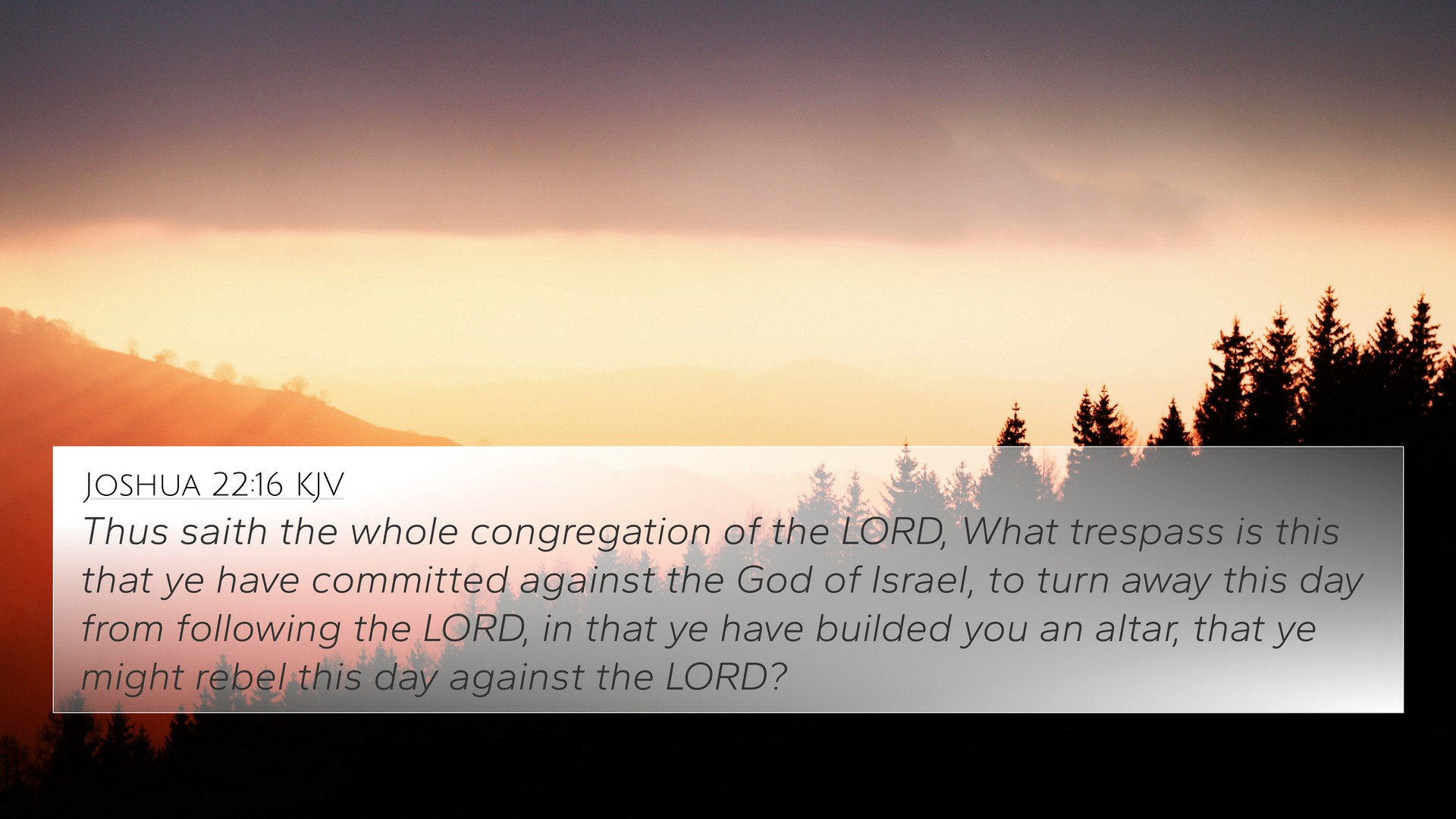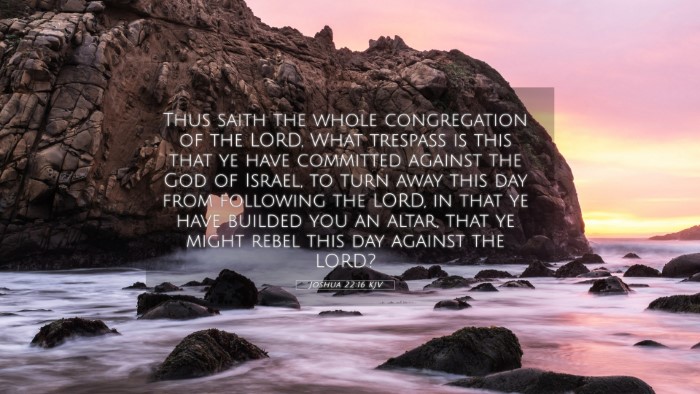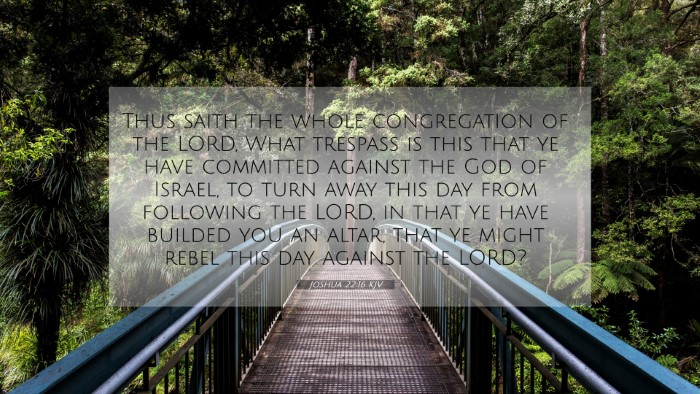Understanding Joshua 22:16
Joshua 22:16 states: "Thus says the whole congregation of the children of Israel: 'What treachery is this that you have committed against the God of Israel, to turn away this day from following the Lord, in that you have built for yourselves an altar, that you might rebel this day against the Lord?'"
Overview
In this verse, the leaders of the tribes of Israel confront the Reubenites, Gadites, and half-tribe of Manasseh. They misunderstand their construction of an altar, perceiving it as an act of rebellion against God. The verse raises critical themes of community, faithfulness, and misapprehension in relationship to divine worship.
Commentary Insights
Various public domain commentaries provide profound insights into the implications and meanings within Joshua 22:16:
-
Matthew Henry:
Henry emphasizes the importance of unity among the Israelites, underscoring that any action which appears to diverge from God’s commands should be confronted. He points out that the misunderstanding led to a vehement accusation when the leaders assumed the actions of their brethren were rebellious.
-
Albert Barnes:
Barnes discusses the mistaken perception of the altar’s purpose. He explains that the eastern tribes built the altar not as a place of sacrifice but as a witness of their heritage. He warns against hasty judgments and highlights the theme of maintaining faith and loyalty to God’s intentions.
-
Adam Clarke:
Clarke delves into the historical context, illustrating that the tribes felt it necessary to communicate their intent clearly to avoid potential conflict. He encourages readers to reflect on the importance of clear communication among believers to prevent assumptions leading to conflict.
Thematic Connections
This verse resonates with several themes throughout Scripture, creating valuable inter-Biblical dialogue. Here are some thematic connections and cross-references:
-
Exodus 20:5-6:
The warning against idolatry connects with the fear of turning away from God, showcased in Joshua 22:16.
-
Deuteronomy 13:12-18:
This passage reflects on the consequences of apostasy, noting the seriousness of leading others astray.
-
1 Samuel 12:20-25:
Samuel admonishes Israel against forsaking the Lord, linking to the repercussions of disobedience noted in this confrontation.
-
Hebrews 3:12-13:
This New Testament segment emphasizes vigilance against unbelief, echoing the concerns expressed by the tribes of Israel.
-
Galatians 5:10:
Paul's warning about a little leaven affecting the whole loaf serves as a reminder that collective spiritual health is crucial.
-
James 1:19-20:
James teaches about the importance of listening and understanding before responding, emphasizing the need for careful dialogue.
-
Colossians 3:13:
This passage urges believers to bear with one another, a principle significant in navigating disputes as seen in Joshua 22:16.
Conclusion
Joshua 22:16 serves as a poignant reminder of the consequences surrounding misunderstandings within a faith community. As demonstrated by Matthew Henry, Albert Barnes, and Adam Clarke, this verse highlights the necessity for transparency, community unity, and the vigilance required to avoid falling away from God’s covenant. It illustrates the importance of clear communication and understanding both within the context of relationships and in individual faithfulness.



